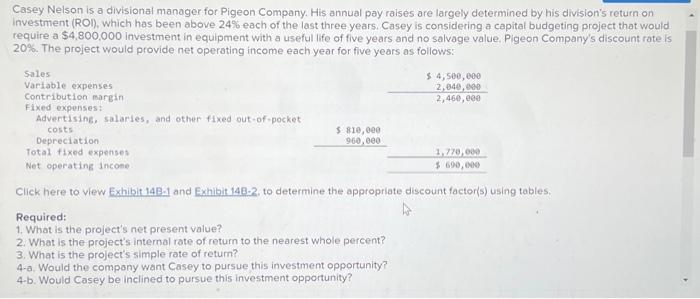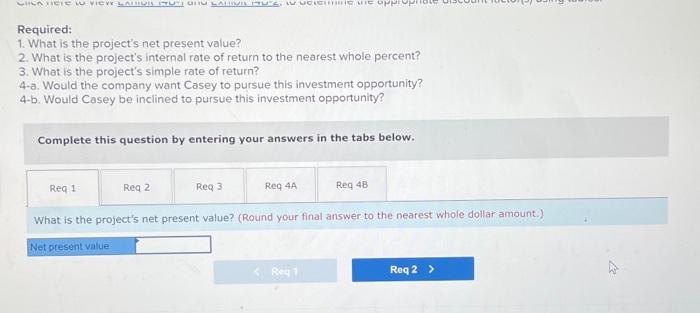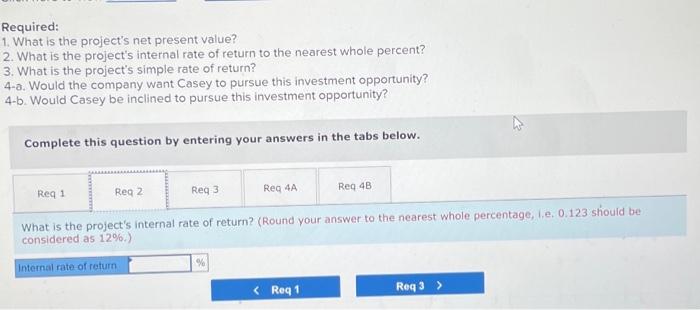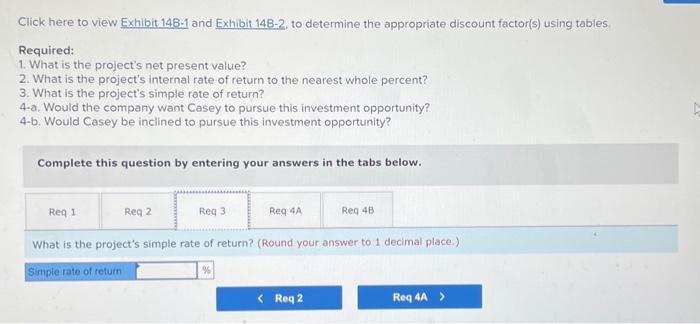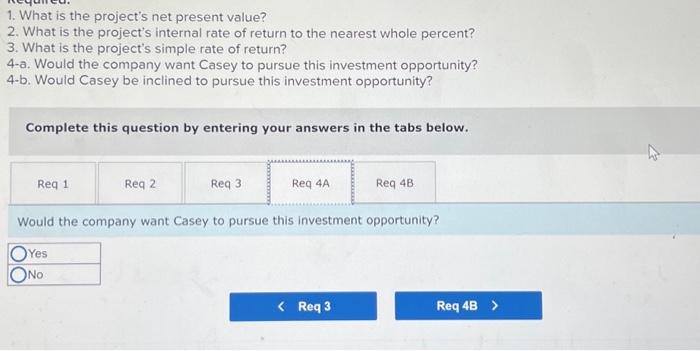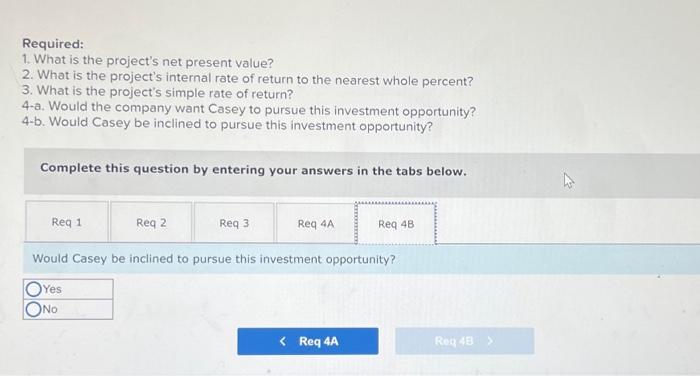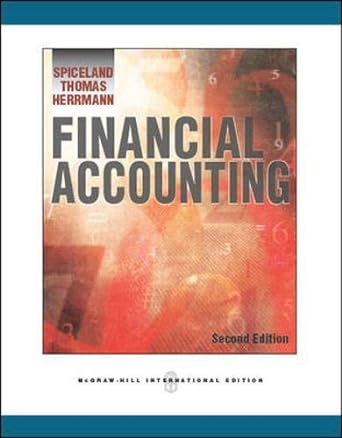Click here to view Exhibit 148-1 and Exhibit 148-2, to determine the appropriate discount factor(s) using tables. Required: 1. What is the project's net present value? 2. What is the project's internal rate of return to the nearest whole percent? 3. What is the project's simple rate of return? 4-a. Would the company want Casey to pursue this investment opportunity? 4-b. Would Casey be inclined to pursue this investment opportunity? Complete this question by entering your answers in the tabs below. What is the project's simple rate of return? (Round your answer to 1 decimal place.) 1. What is the project's net present value? 2. What is the project's internal rate of return to the nearest whole percent? 3. What is the project's simple rate of return? 4-a. Would the company want Casey to pursue this investment opportunity? 4-b. Would Casey be inclined to pursue this investment opportunity? Complete this question by entering your answers in the tabs below. Would the company want Casey to pursue this investment opportunity? Required: 1. What is the project's net present value? 2. What is the project's internal rate of return to the nearest whole percent? 3. What is the project's simple rate of return? 4-a. Would the company want Casey to pursue this investment opportunity? 4-b. Would Casey be inclined to pursue this investment opportunity? Complete this question by entering your answers in the tabs below. What is the project's net present value? (Round your final answer to the nearest whole dollar amount.) Casey Nelson is a divisional manager for Pigeon Company. His annual pay ralses are largely determined by his division's return on investment (ROI), which has been above 24% each of the last three years. Casey is considering a capital budgeting project that would require a $4,800,000 investment in equipment with a useful life of five years and no salvage value. Pigeon Company's discount rate is 20%. The project would provide net operating income each year for five years as follows: Click here to view Exhibit 148-1 and Exhibit 148-2, to determine the appropriote discount factor(s) using tables. Required: 1. What is the project's net present value? 2. What is the project's internal rate of return to the nearest whole percent? 3. What is the project's simple rate of return? 4-a. Would the company want Casey to pursue this investment opportunity? 4-b. Would Casey be inclined to pursue this investment opportunity? Required: 1. What is the project's net present value? 2. What is the project's internal rate of return to the nearest whole percent? 3. What is the project's simple rate of return? 4-a. Would the company want Casey to pursue this investment opportunity? 4-b. Would Casey be inclined to pursue this investment opportunity? Complete this question by entering your answers in the tabs below. Would Casey be inclined to pursue this investment opportunity? Required: 1. What is the project's net present value? 2. What is the project's internal rate of return to the nearest whole percent? 3. What is the project's simple rate of return? 4-a. Would the company want Casey to pursue this investment opportunity? 4-b. Would Casey be inclined to pursue this investment opportunity? Complete this question by entering your answers in the tabs below. What is the project's internal rate of return? (Round your answer to the nearest whole percentage, 1.e, 0.123 should be considered as 12%.)
